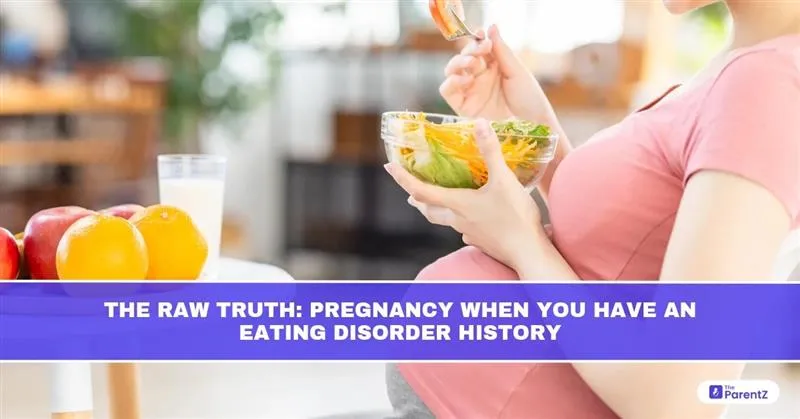Pregnancy introduces profound physical, emotional, and hormonal changes that challenge even the healthiest of women. For individuals with a current or past history of eating disorders (EDs), including anorexia nervosa, bulimia nervosa, binge-eating disorder, or orthorexia, these changes can be especially destabilizing. Studies published in Obstetrics & Gynecology, International Journal of Eating Disorders, and Journal of Maternal-Fetal & Neonatal Medicine highlight that pregnancy can exacerbate underlying disordered thoughts and behaviors, posing risks to both maternal and fetal health. Recognition, multidisciplinary management, and compassionate care are essential.
Understanding the Risks: What Eating Disorders Do to Pregnancy
Eating disorders can lead to profound nutritional deficiencies, endocrine dysfunction, and psychiatric comorbidities. Even in remission, women with ED histories are at increased risk for:
- Intrauterine growth restriction (IUGR)
- Preterm labor and low birth weight
- Gestational hypertension and anemia
- Miscarriage and placental insufficiency
- Delayed prenatal care due to avoidance of medical settings
A 2022 meta-analysis in BJOG: An International Journal of Obstetrics and Gynaecology concluded that women with past or present anorexia nervosa had a significantly higher risk of low birth weight infants compared to women with no ED history.
“We must screen for EDs in early pregnancy—even if a woman appears physically healthy. Nutritional gaps and psychological stressors may remain hidden but pose serious obstetric risks.”
Hormonal and Body Image Challenges During Pregnancy
Pregnancy is associated with physiological weight gain, fluid shifts, and changes in body composition, which may trigger body dysmorphia or restrictive behaviours in those with ED vulnerabilities. Increases in leptin and progesterone affect hunger, satiety, and mood, potentially reigniting preoccupation with food or control.
Many pregnant individuals with prior EDs describe ambivalence joy for the pregnancy, coexisting with fear of “losing control.” Rapid bodily changes, especially in the second trimester, may lead to relapse if not proactively addressed.
The American College of Obstetricians and Gynecologists (ACOG) recommends that clinicians routinely discuss body image, weight gain expectations, and nutrition goals in a non-judgmental, empathetic manner throughout prenatal care.
Nutritional Needs: Rebuilding a Relationship with Food
The nutritional demands of pregnancy increase dramatically, particularly for folic acid, iron, calcium, iodine, omega-3 fatty acids, and protein. Individuals with EDs may struggle with meeting caloric requirements due to food fears, gastrointestinal distress, or compulsive behaviors such as purging or fasting.
Prenatal nutrition in ED patients should be supervised by a clinical dietitian familiar with maternal-fetal needs. Oral supplementation (iron, calcium, DHA, prenatal vitamins) is often required, and enteral nutrition may be considered in cases of severe restriction. development to placental function. We build individualized plans, slowly and compassionately.
Mental Health Monitoring and Psychiatric Considerations
Co-occurring psychiatric conditions, especially anxiety, depression, and obsessive-compulsive disorder, are more common in pregnant individuals with ED histories. Psychiatric decompensation is most likely during the first and third trimesters, and also postpartum, when hormonal fluctuations are extreme.
Regular screening using validated tools like the Edinburgh Postnatal Depression Scale (EPDS) and Eating Disorder Examination Questionnaire (EDE-Q) should be conducted throughout pregnancy. Psychotherapy, particularly CBT-E (enhanced cognitive behavioral therapy), has demonstrated efficacy in preventing relapse and promoting healthier coping mechanisms during pregnancy.
In some cases, pharmacologic treatment may be necessary. Selective serotonin reuptake inhibitors (SSRIs) such as sertraline are considered relatively safe in pregnancy and may be used under psychiatric supervision.
The Role of the Care Team: Multidisciplinary Collaboration is Essential
Care for a pregnant individual with a history of ED should involve a multidisciplinary team, ideally including:
- Obstetrician with high-risk pregnancy experience
- Clinical psychologist or psychiatrist
- Registered dietitian with prenatal specialization
- Endocrinologist (if hormonal or metabolic disturbances are present)
A team-based, non-stigmatizing approach improves treatment adherence and outcomes. Open communication and early intervention are key to mitigating risk and supporting recovery.
Labor, Delivery, and Postpartum Considerations
Labor and delivery in patients with prior EDs should be carefully managed. Those with a history of purging may have electrolyte imbalances or cardiac arrhythmias. Women with long-standing anorexia may have pelvic floor dysfunction or low muscle mass, impacting the labor process.
Postpartum is a high-risk window for ED relapse due to body dissatisfaction, exhaustion, hormonal shifts, and breastfeeding challenges. Clinicians should monitor closely during this time, with continued therapy and support groups where available.
Breastfeeding may pose emotional and nutritional challenges, and choices around it should be respected, prioritizing maternal mental health and not guilt-driven expectations.
Conclusion
Pregnancy in individuals with a history of eating disorders requires specialized, ongoing, and compassionate care. While these pregnancies are considered high-risk, with structured support including mental health care, nutritional counseling, and informed obstetric monitoring, positive outcomes are achievable. Early screening, non-judgmental dialogue, and multidisciplinary collaboration allow both mother and baby to thrive.
Healthcare providers are encouraged to recognize that healing and motherhood can coexist. With the right interventions, women with ED histories can reclaim their relationship with food and body image and experience pregnancy as a chapter of growth rather than regression.
References
- Easter A, Treasure J, Micali N. Fertility and prenatal attitudes towards pregnancy in women with eating disorders: Results from the Avon Longitudinal Study of Parents and Children. BJOG. 2011;118(12):1491-1498.
- Koubaa S, Hällström T, Hirschberg AL. Pregnancy and neonatal outcomes in women with eating disorders. Obstet Gynecol. 2005;105(2):255-260.
- Solmi F, Sallis H, Stahl D, Treasure J, Micali N. Low birth weight in the offspring of women with anorexia nervosa. Int J Eat Disord. 2014;47(5):507-515.
- American College of Obstetricians and Gynecologists. ACOG Committee Opinion No. 740: Screening for perinatal depression. Obstet Gynecol. 2018;132(5):e208–e212.
- Treasure J, Claudino AM, Zucker N. Eating disorders. Lancet. 2010;375(9714):583–593.





Be the first one to comment on this story.